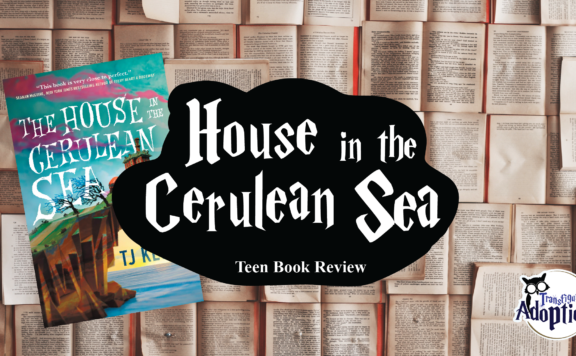Transfiguring Adoption’s Overview:
Pokemon Detective Pikachu (2019) was the Pokemon movie I wanted in my own childhood! The CGI was well done, maintaining the integrity of the animated creatures’ designs while bringing a fresh, updated look to some older (and newer) faces. I admit as a Pokemon fan I’m a little ashamed to have not played the game on which this film is based, but I’m definitely interested after this movie. Nintendo already has much of my wallet anyway…
The franchise also made some excellent decisions concerning the plot and characters. I’m always a little nervous when I see an advertisement for a live-action version of a series in which I’ve invested years of viewership, even with spin-off storyline plots and character development to over-the-top action sequences. However, Pokemon Detective Pikachu writers and actors did an excellent job of making the audience care about our heroes and the world they call home. This was well done by providing relatable characters for grown-ups to enjoy as much as children. Our reluctant, sarcastic hero Tim Goodman, portrayed by Justice Smith, opposite a sassy, upbeat Pikachu, portrayed by Ryan Reynolds, delivered audiences a wonderful balance of comedic and heartfelt chemistry. Bring your tissues though because while the movie has plenty of high notes, there are a few tear-jerker moments from Tim reflecting on his past and moving toward a better future with hope and love.
** Spoilers Could Be Ahead **
How Is This Relevant To Adoption & Foster Care?
I planned on seeing this film long before I realized that this film had a tie to adoption or foster care. As a millennial parent, I have successfully indoctrinated my step-child into the world of all things nerd and geekery, and we bond over our shared love for fantasy worlds. I’ve introduced her to childhood favorites of mine, such as Sailor Moon, Cardcaptor Sakura, and all things Studio Ghibli, so of course Pokemon is high on the list for us. However, as time has gone on (and adulting has taken precedence over fun) I completely missed out on the Detective Pikachu Nintendo 3DS game and had no idea what feels-trap I was walking into as a foster care and adoption worker.
Of course, the film has the typical plot of “good guy finding and defeating bad guy.” And as is the trend lately, our hero Tim Goodman is a little more than reluctant to step up and do the finding and defeating. Parents can identify with a young man who has lost hope in big dreams in favor of a steady job and income and found sarcasm to be primary in coping with others’ unwanted (though well-meaning) advice. But interwoven in the plot is the story of a young man who has never fully processed the grief of losing a mother to illness and a father to his work. As the film progresses, we discover that Tim Goodman actually loved Pokemon as a little boy and dreamed of having a Pokemon companion with which to take on his own adventure. After his mother’s passing and his father’s relentless dive into work while he also grieved, we discover that Tim was raised by his grandmother who also eventually succumbed to death. Through these sequences I began to realize that what others may see as sarcasm is actually a survival behavior Tim has developed to keep others at length to prevent loss. What others in the film may see as mediocrity in Tim’s job, it’s where Tim finds normalcy and safety. Tim is acting as an adult who is working through unresolved trauma and has so very much in common with “my kids” in care. I laughed with him in his moments of triumph and discovering he can trust. I cried in the moments Tim realized he was not alone. And I found, once again, a whole new way to connect two worlds I love very much.
Discussion Points:
- The Relationship Between Loss and Grief
As most Foster/Kinship/Adoptive caregivers learn in pre-approval training, every child in care has experienced loss. This could be temporary while a parent works a permanency plan to reunify with their child. This could be long-term or permanent, such as a child who has lost a parent due to death, incarceration, drug use, mental illness (and so mentally/emotionally absent), or a court order terminating parental rights. Grief must be walked through in its stages in varying orders before eventually reaching acceptance. But with each new loss, comes a new cycle of grief. Children in care may not have had the chance to learn how to handle grief and loss with the help of a caring adult. Some may lash out or push away when a caregiver tries to help (much like Tim and Pikachu at different points in the film). As professional caregivers, we have to remind ourselves to be bigger, wiser, and stronger and remember that not every interaction is going to go as scripted. We love children and hate to see them suffer, but it’s important to quietly accept a child’s pain and help them walk through it rather than hide it and push it away saying, “It will all be okay.” Walking through the grief cycle supports a need that is being expressed through a grieving child’s behaviors and emotions and is our opportunity to support healthy development and positive attachment bonds. - Relationship Building after Intense Trauma
After intense loss a child may not ever want to feel that hurt ever again. So as a result, they may try to push others away or be the ones to reject a loved one before they can be rejected themselves. As we saw with Tim and Pikachu, it took time and consistency for Tim to trust Pikachu. Though we love children and may be excited to have foster/kinship/adoptive placements in our home, we must remember that the child may not be as excited to be in our homes and may need a period of delayed parental gratification (meaning, a period of time where a child may not reciprocate affection in a parent/child relationship) before being able to reciprocate our affection. It’s important to remember that we do not know a child’s full story or the way they perceived it, and this may lead to some tall emotional walls. - Forgiveness
Sometimes there is a clear “bad guy” in the story, like we see in the main plot with Howard Clifford. Other times the people who hurt us most are those closest to us. Children in care have often suffered as a result of actions of parents who love them, and this can carry over into other areas of life. It’s important for us to talk to our children about forgiveness and what that looks like in a healthy context. Forgiveness is more important for the hurt party and, as I will discuss in my next discussion point, forgiveness does not have to mean that the offending party can come back and hurt again as forgiveness can still mean putting forth healthy boundaries. - Healthy Boundaries
Children in care often have unhealthy, if existent at all, boundaries with those around them. These could be born of a desire for closeness after intense loss and grief or from unhealthy boundaries being modeled for them. In the film we see examples of an over-boundaried individual in Tim, who is avoiding being hurt again, and a nonexistent boundary holder in Pikachu (who says whatever comes to mind and invades all personal spaces even after receiving correction). Children need caregivers to both model appropriate boundaries and talk them through placing healthy boundaries to promote positive emotional and physical wellbeing.
Cautionary Points:
- Death/Loss of Family Members
It is important to remember that our children have gone through many challenges and experiences unique to a foster or adopted child. Many have lost loved ones whether temporarily due to foster placement or permanently due to death, mental illness of a caregiver, a court’s ruling, or incarceration. Throughout the film Tim experiences flashbacks revealing that he has lost his mother to illness, his grandmother to death, and it’s assumed at the beginning of the film that his father was killed in a big (on scene) car crash. At one point it also appears that Pikachu may be dying (with Tim saying “I don’t want to lose him too!” tearfully). - Unrealistic Expectations of Reunification
By the end of the film, it is discovered that Tim’s father, Harry Goodman, is actually alive. At the end of the film, Tim decides to forgive his father for the years Harry buried himself in work and try to pursue a relationship with him by living in Ryme City with him and Pikachu. Children always desire a relationship with their family of origin and may not understand that a parent may not come back, and everything may not end in a fairytale of normalcy and (in the case of children removed from their families) free of the issues that existed prior to separation. - Some of The Pokemon Look Scary after Exposure to an Unknown Substance
As part of the plot, several Pokemon attack humans after being exposed to a purple gas called “R.” Just before going into the drug-induced rampages, the Pokemon’s faces appear very scary. This may be triggering for children who have witnessed drug use and domestic violence. Also, this may just be scary in general. You will see what I mean when the cute, monkey-like Aipom at the beginning goes bananas and chases down Tim and Pikachu. - Coffee “Addiction”
Adult audiences will laugh at Pikachu’s relationship with coffee. However, at a few points in the film, the nectar of the gods is somewhat treated like alcohol and Pikachu even states, “I can quit whenever I want!” While relatable for adults, this and the coffee shop resembling a bar may be triggering for children exposed to alcohol abuse and the consequences of a caregiver getting drunk. - Crude/Rude Humor
Let’s be real, we knew this was coming when Ryan Reynolds was announced as Pikachu. I love RR, but after a couple of decades of his movies, there is definitely a pattern in his humor. Be prepared as Pikachu tells Tim to “Grow some berries!” and makes other crude remarks of this nature. - Interrogation Scene, Fire Setting
We see the beginning of this scene in the trailer. Pikachu and Tim approach a Mr. Mime Pokemon, and Mr. Mime pantomimes a hilarious escape attempt. However, as the scene continues, Tim realizes that he must pantomime back with Mr. Mime to communicate with him. In this scene Tim pantomimes locking Mr. Mime into a room, covering him with gasoline, and threatening to light a match. This may have been funny in a Looney Toon, but may be a bit much for younger audiences exposed to traumatic events, or it may normalize behavior for children who struggle with setting fires.
[Donate to this Project]
Buy From Our Links and Support Transfiguring Adoption:
NOTE: Inclusion on these lists does not necessarily mean endorsement. Furthermore, with all our resources, we highly recommend you preview them first to determine if there are any trauma triggers that your child may not be ready to handle. Transfiguring Adoption does not intend for its reviewers nor its reviews to be professional, medical or legal advice. These reviews and discussion guides are intended to help parents to better be able to connect and understand their children who come from traumatic backgrounds.


